Willkommen auf meinem Blog!
Bevor wir uns in die Inhalte vertiefen, würde ich mich freuen, wenn Sie mir auf meinen Social-Media-Plattformen folgen, wo ich weitere Einblicke gebe, mit der Community interagiere und Updates poste. So können Sie mit mir in Kontakt treten:
Facebook: https://www.facebook.com/profile.php?id=100072217509763
LinkedIn: https://www.linkedin.com/company/74949059/admin/dashboard/
YouTube:www.youtube.com/@tractormanufacturer-lc5qz,www.youtube.com/@excavatormanufacturers-sn9hk
TikTok: www.tiktok.com/@tractormanufacturer, www.tiktok.com/@excavatormanufacturers
Lassen Sie uns nun gemeinsam unsere Reise beginnen. Ich hoffe, Sie finden die Inhalte hier aufschlussreich, spannend und wertvoll.
Einführung
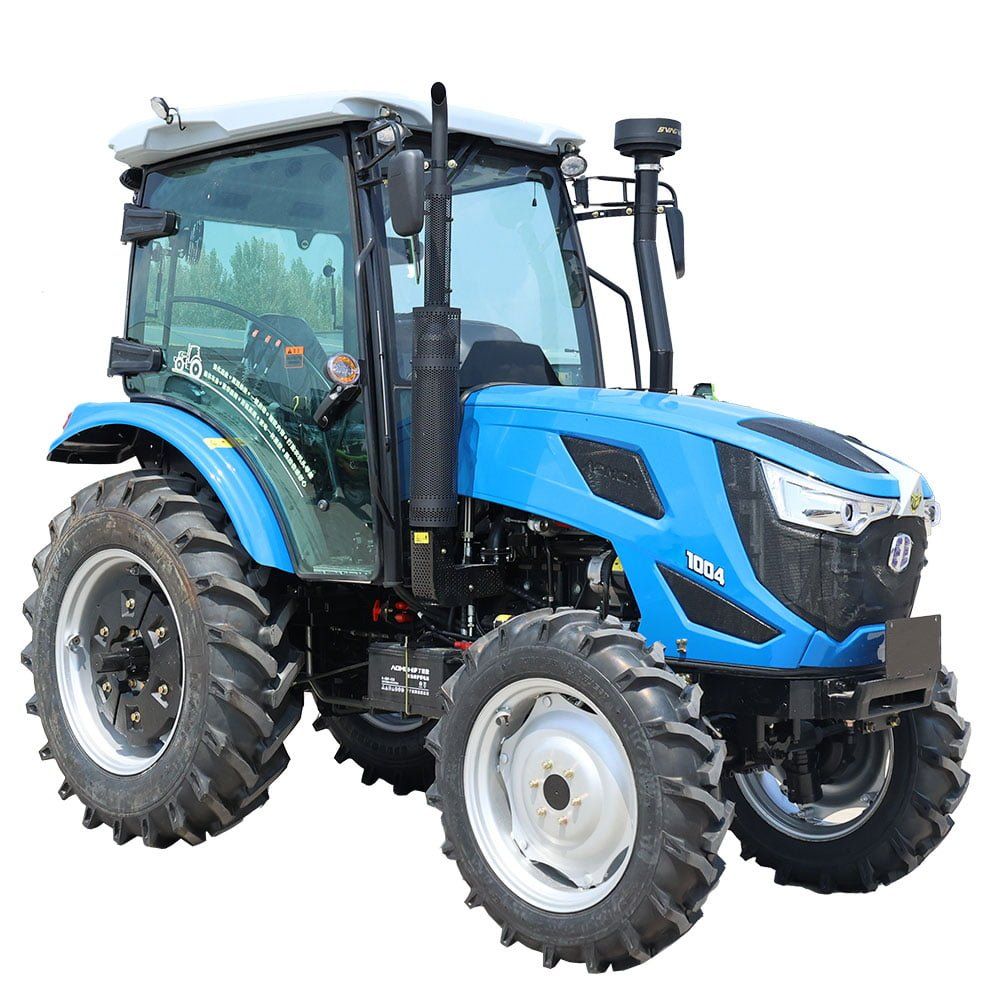
Warum einen Traktor importieren?
Der Import eines Traktors aus Übersee kann für Landwirte, Unternehmen und Privatpersonen, die nach spezialisierter oder kostengünstiger Ausrüstung suchen, mehrere Vorteile bieten. Ob Sie ein großer landwirtschaftlicher Betrieb oder ein kleiner Hobbybauer sind, der globale Markt für Traktoren bietet eine große Auswahl an Optionen für unterschiedliche Bedürfnisse.
In diesem umfassenden Leitfaden gehen wir auf die wichtigsten Vorteile des Traktorimports ein, untersuchen die Faktoren, die beim Kauf zu berücksichtigen sind, und geben Antworten auf häufig gestellte Fragen. Am Ende dieses Artikels haben Sie ein besseres Verständnis dafür, wie der Import eines Traktors Ihren Betrieb verbessern und Ihnen Geld sparen kann.
Hauptvorteile von Traktoren importieren
Größere Auswahl
- Spezialausrüstung: Auf ausländischen Märkten werden häufig Spezialtraktoren für besondere Aufgaben oder Gelände angeboten, die im Inland möglicherweise nicht ohne weiteres erhältlich sind.
- Einzigartige Funktionen: Importierte Traktoren verfügen möglicherweise über einzigartige Funktionen oder Konfigurationen, die die Effizienz und Produktivität verbessern können.
- Anpassung: Viele Hersteller bieten individuelle Anpassungsmöglichkeiten an, sodass Sie den Traktor genau an Ihre Anforderungen anpassen können.
Kosteneinsparungen
- Niedrigere Herstellungskosten: In einigen Ländern sind die Herstellungskosten für Traktoren niedriger, was für den Käufer erhebliche Einsparungen bedeuten kann.
- Großeinkauf: Durch den Import mehrerer Traktoren oder den Kauf großer Mengen können erhebliche Rabatte gewährt werden.
- Vermeidung lokaler Steuern: Abhängig von Ihrem Standort und dem Herkunftsland können Sie möglicherweise von niedrigeren Steuern oder Einfuhrzöllen profitieren.
Höhere Qualität
- Strengere Qualitätsstandards: In einigen Ländern gelten bei der Herstellung von Traktoren strengere Qualitätskontrollstandards, um sicherzustellen, dass die importierten Geräte langlebig und zuverlässig sind.
- Fortschrittliche Technologie: Ausländische Hersteller sind möglicherweise Vorreiter in der Traktortechnologie und bieten Modelle mit den neuesten Innovationen an.
Anpassung:
- Maßgeschneiderte Spezifikationen: Viele Hersteller bieten individuelle Anpassungen an, sodass Sie den Traktor genau an Ihre Anforderungen, wie beispielsweise Motorgröße, Hydraulikleistung und Reifenoptionen, anpassen können.
- Einzigartige Funktionen: Sie können einzigartige Funktionen angeben, die bei Standardmodellen möglicherweise nicht verfügbar sind, wie z. B. spezielle Anbaugeräte oder Kabinenkonfigurationen.
Zu berücksichtigende Faktoren bei Einen Traktor importieren
-
 Traktor 1604 mit Allradantrieb und 140 PS
Traktor 1604 mit Allradantrieb und 140 PS -
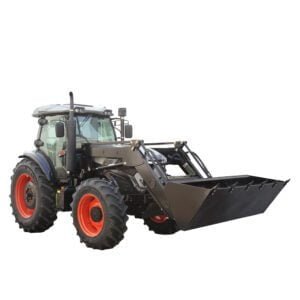 140 PS-Ackerschlepper 1404
140 PS-Ackerschlepper 1404 -
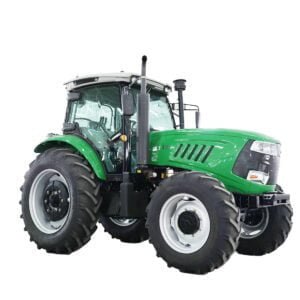 130 PS Farmall Traktor 1304
130 PS Farmall Traktor 1304 -
 Der schwerste QILU 260HP-Modernisierungstraktor
Der schwerste QILU 260HP-Modernisierungstraktor -
 Leistungsstarker QILU 240 PS Traktor mit schwerem Fahrgestell
Leistungsstarker QILU 240 PS Traktor mit schwerem Fahrgestell -
 Internationaler Standard Power QILU 220HP Landwirtschaftstraktor
Internationaler Standard Power QILU 220HP Landwirtschaftstraktor -
 Lieferant von 100-PS-Traktoren aus China
Lieferant von 100-PS-Traktoren aus China -
 OEM 80 PS Traktorfabrik
OEM 80 PS Traktorfabrik -
 China 70 PS Traktor Großhandel
China 70 PS Traktor Großhandel
Beim Import eines Traktors kommt es zu einem komplexen Zusammenspiel verschiedener Faktoren. Um einen reibungslosen und erfolgreichen Importprozess zu gewährleisten, ist es wichtig, Folgendes zu beachten:
Einhaltung gesetzlicher Vorschriften
- Einfuhrbeschränkungen: In verschiedenen Ländern gelten spezifische Vorschriften für den Import von Landmaschinen. Dazu können Einschränkungen hinsichtlich Alter, Marke oder technischen Spezifikationen gehören.
- Sicherheitsstandards: Stellen Sie sicher, dass der Traktor den Sicherheitsstandards Ihres Landes entspricht. Dies kann Zertifizierungen und Tests umfassen.
- Umweltvorschriften: In einigen Ländern gelten strenge Umweltschutzbestimmungen hinsichtlich Emissionen und Lärmpegel.
- Kontingente und Zölle: Informieren Sie sich über die für Traktoren geltenden Einfuhrquoten und Zölle.
Logistik und Versand
- Versandarten: Wählen Sie die am besten geeignete Versandmethode basierend auf Größe und Gewicht des Traktors sowie der Dringlichkeit der Lieferung. Zu den Optionen gehören Seefracht, Luftfracht und Landtransport.
- Versicherung: Schließen Sie einen ausreichenden Versicherungsschutz ab, um sich gegen Verluste oder Schäden während des Transports abzusichern.
- Einreisehafen: Wählen Sie einen Einreisehafen, der für die Abfertigung von landwirtschaftlichen Maschinen gut ausgerüstet ist.
- Zollabfertigung: Machen Sie sich mit den Verfahren zur Zollabfertigung und den Dokumentationsanforderungen vertraut.
Finanzielle Überlegungen
- Kostenaufschlüsselung: Berechnen Sie die Gesamtkosten, einschließlich Kaufpreis, Versandkosten, Zollgebühren, Steuern und eventueller zusätzlicher Gebühren.
- Zahlungsbedingungen: Vereinbaren Sie mit dem Lieferanten die für Sie günstigsten Zahlungsbedingungen.
- Währungswechselkurse: Überwachen Sie die Wechselkurse, um finanzielle Risiken zu verwalten.
- Finanzierungsmöglichkeiten: Informieren Sie sich bei Bedarf über Finanzierungsmöglichkeiten.
Traktorspezifikationen
- Kompatibilität: Stellen Sie sicher, dass der Traktor mit der örtlichen Infrastruktur, den Kraftstoffarten und den Klimabedingungen kompatibel ist.
- Wartung: Berücksichtigen Sie die Verfügbarkeit von Ersatzteilen und Service in Ihrer Region.
- Anpassung: Wenn eine individuelle Anpassung erforderlich ist, arbeiten Sie eng mit dem Lieferanten zusammen, um sicherzustellen, dass der Traktor Ihren speziellen Anforderungen entspricht.
Lieferantenauswahl
- Ruf: Informieren Sie sich über den Ruf und die Erfolgsbilanz des Lieferanten.
- Erfahrung: Wählen Sie einen Lieferanten mit Erfahrung im Export von Landmaschinen.
- Kommunikation: Sorgen Sie für eine effektive Kommunikation mit dem Lieferanten, um Missverständnisse zu vermeiden.
- Kundendienst: Erkundigen Sie sich nach dem Kundendienst und der Garantie des Lieferanten.
Rechtliche und vertragliche Angelegenheiten
- Kaufvertrag: Legen Sie einen detaillierten Kaufvertrag vor, in dem alle Bedingungen und Konditionen aufgeführt sind.
- Geistiges Eigentum: Stellen Sie sicher, dass der Lieferant über die erforderlichen geistigen Eigentumsrechte verfügt.
- Streitbeilegung: Erwägen Sie die Aufnahme einer Klausel zur Streitbeilegung in den Vertrag.
Zusätzliche Tipps
- Lassen Sie sich von einem Importspezialisten beraten: Lassen Sie sich von einem Importspezialisten oder Zollagenten beraten, um die Einhaltung aller Vorschriften sicherzustellen.
- Besuchen Sie den Lieferanten: Besuchen Sie, wenn möglich, die Räumlichkeiten des Lieferanten, um die Traktoren vor dem Kauf zu inspizieren.
- Treten Sie Branchenverbänden bei: Knüpfen Sie Kontakte zu Branchenverbänden, um sich mit anderen Importeuren zu vernetzen und über Branchentrends auf dem Laufenden zu bleiben.
Vergleichstabelle: Inländisch vs. Import Traktoren
| Besonderheit | Inländische Traktoren | Importierte Traktoren |
|---|---|---|
| Verfügbarkeit | Sofort verfügbar | Größere Auswahl |
| Kosten | Generell höher | Potenziell niedriger |
| Anpassung | Begrenzte Optionen | Mehr Anpassungsoptionen |
| Qualität | Variiert | Kann aufgrund strengerer Normen höher sein |
| Unterstützung | Umfangreiches Händlernetz | Möglicherweise ist mehr Aufwand erforderlich, um Unterstützung zu finden |
Fazit

Der Import eines Traktors aus Übersee kann eine lohnende Erfahrung sein, da er Zugang zu einer größeren Auswahl an Optionen, potenziellen Kosteneinsparungen und hochwertigerer Ausrüstung bietet. Es ist jedoch wichtig, die beteiligten Faktoren wie Versandkosten, Einfuhrzölle und die Einhaltung von Vorschriften sorgfältig zu berücksichtigen. Durch gründliche Recherche und die Zusammenarbeit mit einem seriösen Lieferanten können Sie eine fundierte Entscheidung treffen und den perfekten Traktor für Ihre Anforderungen finden.
FAQs
Wie lange dauert der Import eines Traktor?
- Die für den Import eines Traktors erforderliche Zeit kann je nach verschiedenen Faktoren erheblich variieren, darunter Herkunftsland, Zielhafen, Zollabfertigungsverfahren und erforderliche Inspektionen. Im Allgemeinen kann der gesamte Prozess zwischen einigen Wochen und mehreren Monaten dauern.
Welche Dokumente werden für den Import eines Traktors benötigt?
- Die erforderlichen Dokumente können je nach Ihrem Standort und Herkunftsland unterschiedlich sein. Zu den üblichen Dokumenten gehören jedoch:
- Handelsrechnung
- Frachtbrief
- Packliste
- Ursprungszeugnis
- Einfuhrlizenz (falls erforderlich)
- Sicherheitszertifizierung (falls erforderlich)
- Pflanzengesundheitszeugnis (sofern zutreffend)
Kann ich ein gebrauchtes Traktor?
- Ja, Sie können normalerweise einen gebrauchten Traktor importieren. Im Vergleich zum Import eines neuen Traktors können jedoch zusätzliche Anforderungen und Einschränkungen gelten. Beispielsweise müssen Sie möglicherweise Unterlagen vorlegen, die das Alter und den Zustand des Traktors belegen.
Welche potenziellen Risiken bestehen beim Import eines Traktors?
- Zu den potenziellen Risiken beim Import eines Traktors gehören:
- Verzögerungen beim Versand oder bei der Zollabfertigung
- Transportschäden
- Nichteinhaltung der Einfuhrbestimmungen
- Schwierigkeiten bei der Erlangung von After-Sales-Support
- Währungsschwankungen
Wie finde ich einen zuverlässigen Lieferanten?
- Um einen zuverlässigen Lieferanten zu finden, beachten Sie Folgendes:
- Online-Marktplätze: Websites wie Alibaba und Global Sources bieten eine große Auswahl an Traktorlieferanten.
- Messen und Ausstellungen: Nehmen Sie an Branchenveranstaltungen teil, um Lieferanten persönlich zu treffen.
- Branchenverbände: Wenden Sie sich für Empfehlungen an Branchenverbände.
- Quellen: Fragen Sie andere Importeure nach Referenzen.
- Sorgfaltspflicht: Informieren Sie sich gründlich über den Ruf und die finanzielle Stabilität des Lieferanten.

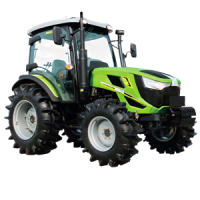
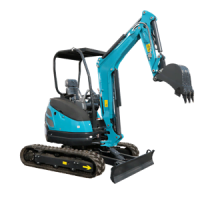
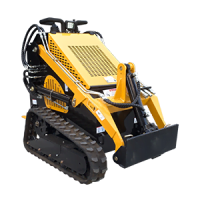
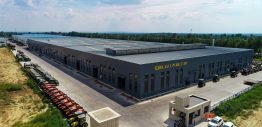
-1.png)